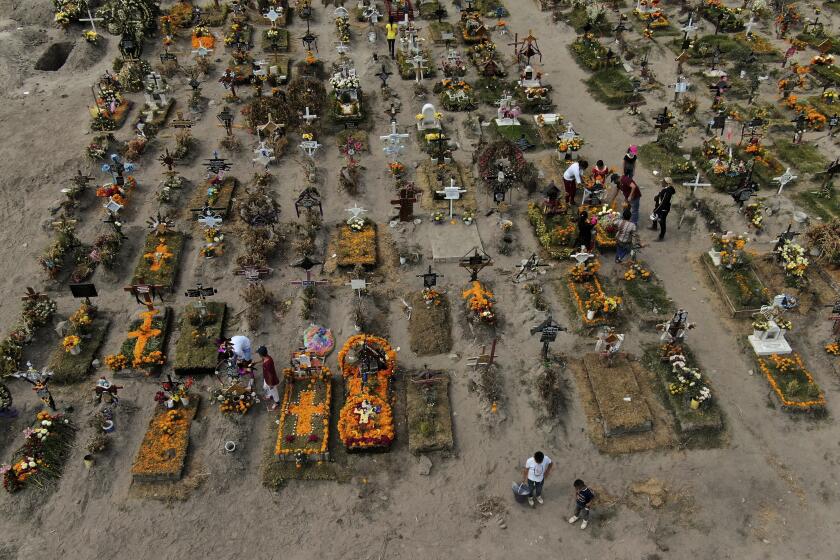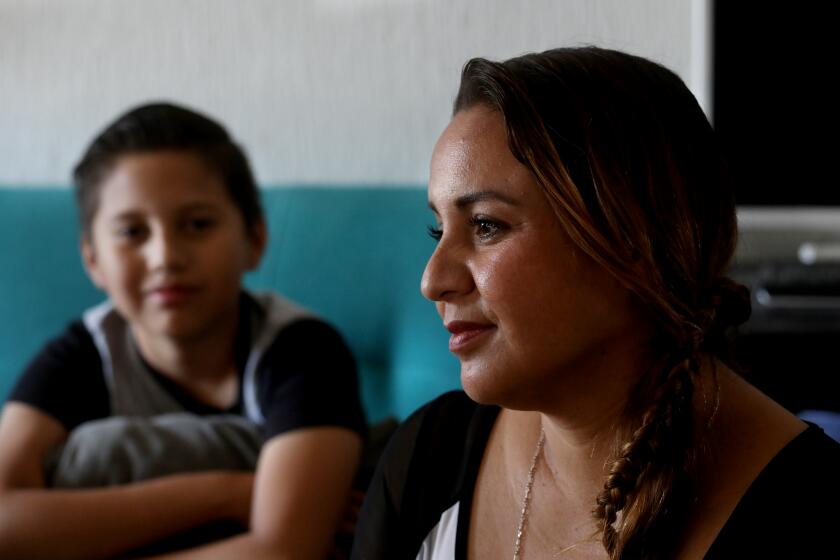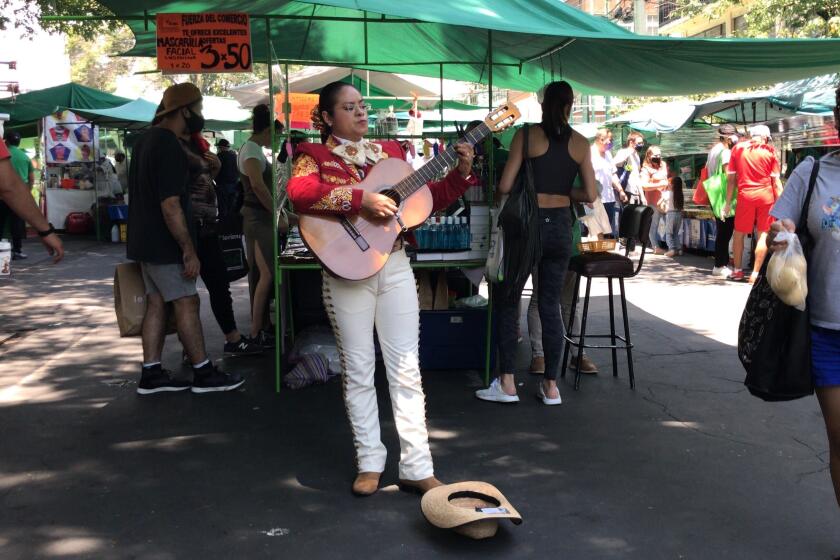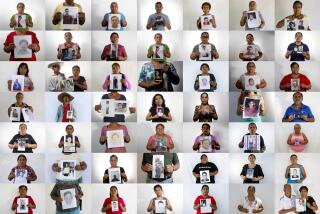Mexico tops 100,000 COVID-19 deaths as official slams media for ‘being alarmist’
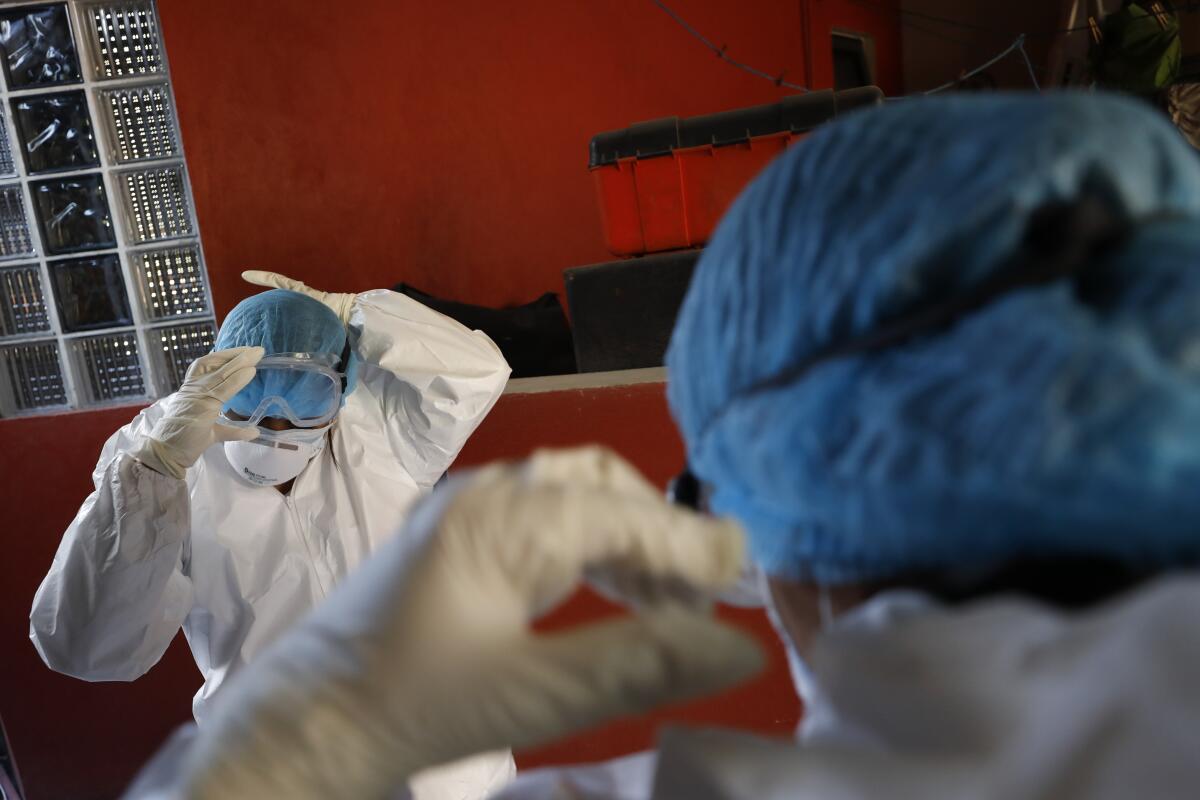
- Share via
MEXICO CITY — Mexico passed the 100,000 mark in COVID-19 deaths, becoming only the fourth country to do so amid concerns about the lingering physical and psychological scars on survivors.
José Luis Alomía Zegarra, Mexico’s director of epidemiology, announced late Thursday that Mexico had logged 100,104 confirmed COVID-19 deaths, behind only the United States, Brazil and India.
The milestone comes less than a week after Mexico topped 1 million registered coronavirus cases, although officials agree the number is probably much higher because of low levels of testing.
The coverage of the back-to-back milestones has raised the hackles of some government officials.
Mexico’s point person on the pandemic, Assistant Health Secretary Hugo López-Gatell, bristled when asked about Mexico reaching 100,000 deaths and criticized the media for “being alarmist.” In the same way, he has criticized those who suggest that the government is undercounting COVID-19 deaths or providing contradictory and weak advice on using masks.
“The epidemic is terrible in itself — you don’t have to add drama to it,” said López-Gatell, suggesting that some media outlets were focusing on the number of deaths to sell newspapers or spark “political confrontation.”
The pandemic has quieted one of the country’s signature holidays — Día de los Muertos, or Day of the Dead, when Mexicans honor deceased loved ones in often-boisterous fashion.
“Putting statistics on the front page doesn’t, in my view, help much,” he said.
Like the U.S., Mexico appears a divided country about the pandemic, where some people are so unconcerned that they won’t wear masks while others are worried at the first sign of shortness of breath.
With little testing being done — Mexico tests only people with severe symptoms and has performed only about 2.5 million tests in a country of 130 million — and a general fear of hospitals, many in Mexico are left to home remedies and relatives’ care when the disease strikes.
Such is the case in the poverty-stricken Ampliación Magdalena neighborhood on Mexico City’s rough east side, where most people work as unregistered day laborers at the city’s sprawling produce market.
The coronavirus is eroding decades of slow but steady progress in building up Mexico’s middle class. Economists say the damage will be long-lasting.
The busy market was the scene of one of the first big coronavirus outbreaks in the greater metropolitan area, which is home to 21 million people, and so early on in the pandemic local undertakers were swamped with corpses.
The local funeral home “looked like a bakery, with people lined up, with hearses lined up,” said community leader Daniel Alfredo López González. The owner of the funeral home told him some people waited to get bodies embalmed for burial while others were in the line to get their relatives’ remains cremated.
The lack of hospitals in some areas, fears of the ones that do exist and the low levels of testing have created a fertile breeding ground for ignorance, suspicion and fear.
López González described getting COVID-19 himself. Even though he recovered, the fear was crushing.
“It is a tremendous psychosis. In the end, sometimes the disease itself may not be so serious, but it is for a person’s psyche,” López González said. “Knowing that you have a disease like this can [affect] you as bad as the disease itself.”
Parties are crucial to Mexican culture, binding family and community. The pandemic has put them on hold.
His sister, public health outreach worker Dulce María López González, nursed four members of her family through COVID-19, relying on phone-in advice and medications from a doctor who was nursing his own relatives.
Her first brush with the pandemic’s psychological effects were her own fears that her job as a health worker might have exposed her to it.
“I can’t breathe,” she remembered thinking. “And I said to myself, no, it is a psychological question.”
She forced herself to calm down, noting: “If I get worked up thinking I have the disease, that I am going to die, then I am going to have a heart attack.”
Her second brush with its effects involved her relatives’ decision to ride out the disease at home. She desperately searched for ways to get scarce and expensive medical equipment.
“There came a point when I said no, I can’t do it,” López González said.
López González, whose job involves handing out free surgical masks to residents, has also seen the other side of the psychological spectrum: those who don’t care.
“I saw this person whom I had given a mask to, and I told her she shouldn’t be outside without it,” she recalled. “She told me that no, nothing was going to happen to her. Two weeks later we found out she had died of COVID.”
More to Read
Sign up for Essential California
The most important California stories and recommendations in your inbox every morning.
You may occasionally receive promotional content from the Los Angeles Times.
